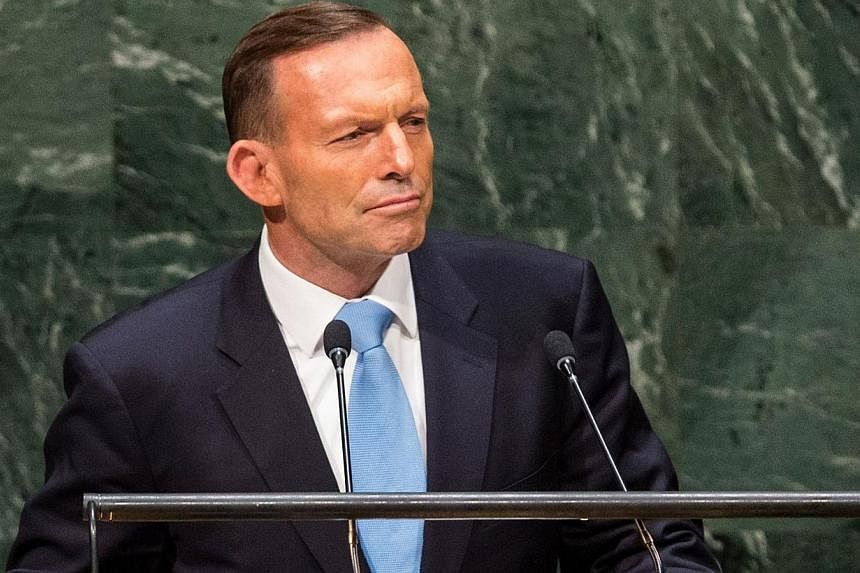SYDNEY (Reuters) - Australia will fund an Ebola treatment clinic in Sierra Leone, Prime Minister Tony Abbott said on Wednesday, responding to pressure from the United States and others to do more to tackle the deadly outbreak at its West African source.
Australia last week became the first rich nation to issue a blanket ban on visas from the three most Ebola-affected countries - Sierra Leone, Guinea and Liberia - sparking widespread criticism.
Australia will provide A$20 million (S$22.5 million) to staff a 100-bed treatment centre that will be built by Britain and run by Aspen Medical, a private Australian company. "We anticipate about 240 staff required to do the job," Mr Abbott told reporters in Sydney. "Most of them will be locally engaged. Some will be international and it's quite possible, even likely, that some will be Australian."
Australia had already committed around A$18 million to fight the outbreak of the virus, but had been called on by United States President Barack Obama, opposition lawmakers and medical bodies such as Doctors Without Borders to do more.
"There are many Australians who wish to volunteer to use their skills, committed and capable doctors and nurses who wish to help in the fight against Ebola," opposition leader Bill Shorten. "However, we believe that the government, whilst this is a welcome, overdue step, has not gone as far as it should to help tackle the scourge at the source."
Oxfam also welcomed the move and urged the government to consider deploying the Australian military to help with logistics and other support.
Mr Abbott's government had raised concerns that any medical staff infected with the disease would not have access to treatment and would face a dangerous 30-hour evacuation flight home. Britain had given assurances that any Australian staff infected with Ebola would be treated as if they were a British citizen, Mr Abbott said.
Ebola can take as long as three weeks before its victims show symptoms, at which point the disease becomes contagious. Ebola, which can cause fever, vomiting and diarrhoea, spreads through contact with bodily fluids such as blood or saliva.
World Bank Group president Jim Yong Kim on Tuesday criticised Asian countries for not contributing enough to the global effort to fight Ebola, despite having a wealth of trained medical personnel. "Many countries in Asia who could help simply are not, especially when it comes to sending health workers," Mr Kim told a news conference in Seoul.
The World Health Organisation says the outbreak, the most deadly on record, has killed some 5,000 people. No cases have been diagnosed in Australia, although there have been a number of scares.
Mr Abbott said Australia would step up measures at its borders to protect against Ebola entering the country, including requesting 21-day traveller history declarations, additional questioning and temperature checking of "passengers of concern".

